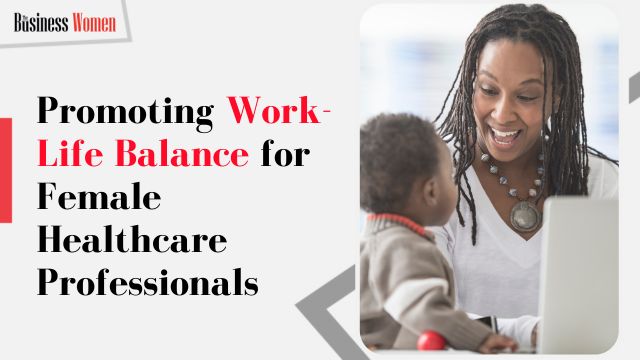Female healthcare professionals play a crucial role in India’s healthcare system, working tirelessly to provide quality medical care and improve the well-being of patients. However, the demanding and high-pressure nature of their profession can often lead to challenges in maintaining a healthy work-life balance. Striking a harmonious balance between professional commitments and personal life is essential for the overall well-being and job satisfaction of female healthcare professionals. In this article, we explore effective strategies to promote work-life balance and support the women who dedicate their careers to healthcare in India.
Flexible Work Scheduling:
Implementing flexible work schedules can significantly benefit female healthcare professionals. Offering options like part-time work, job-sharing, or flexible shifts allows them to manage their personal commitments without compromising on the quality of patient care. Flexibility in work hours can reduce stress, enhance productivity, and improve overall job satisfaction.
Emphasise Time Management:
Time management skills are essential for healthcare professionals to juggle demanding work responsibilities and personal life effectively. Providing training and resources to enhance time management skills can empower female healthcare professionals to allocate time efficiently and prioritise tasks based on urgency and importance.
Create Supportive Work Culture:
Fostering a supportive work culture is crucial for promoting work-life balance. Encouraging open communication, empathy, and mutual respect among colleagues and superiors helps healthcare professionals feel valued and understood. A supportive work environment can reduce stress and create a positive atmosphere for personal and professional growth.
Provide Access to Employee Assistance Programs:
Offering access to employee assistance programs (EAPs) can be highly beneficial for female healthcare professionals facing work-related stress or personal challenges. EAPs provide counselling services, mental health support, and resources to help employees cope with various issues and maintain overall well-being.
Encourage Self-Care:
Promoting self-care among healthcare professionals is essential, as they often prioritise patient care over their well-being. Encourage regular breaks during shifts, access to relaxation areas, and support for mental health activities such as meditation or yoga. By taking care of themselves, healthcare professionals can better care for their patients.
Support Parental Leave and Childcare Services:
Balancing the demands of a medical career with parenthood can be particularly challenging for female healthcare professionals. Providing generous parental leave and on-site or subsidised childcare services can alleviate some of the stress associated with managing both roles.
Offer Continuing Education and Skill Development:
Investing in the professional growth of female healthcare professionals is vital. Offering opportunities for continuing education and skill development not only enhances their abilities but also increases their confidence in handling work responsibilities efficiently. This, in turn, contributes to a better work-life balance.
Promote Telehealth and Remote Work Options:
Embracing telehealth and remote work options can provide female healthcare professionals with more flexibility in their schedules. Telehealth services allow healthcare professionals to provide consultations from remote locations, enabling them to better balance work and personal commitments.
Recognise and Reward Achievements:
Recognising the hard work and dedication of female healthcare professionals is crucial for maintaining their motivation and job satisfaction. Implementing a robust rewards and recognition program that acknowledges their efforts can boost morale and foster a sense of appreciation for the work they do.
Conclusion
Promoting work-life balance for female healthcare professionals is essential for their well-being, job satisfaction, and ability to deliver quality patient care. By offering flexible work schedules, emphasising time management, creating a supportive work culture, and providing access to employee assistance programs, healthcare organisations can support their female workforce. Encouraging self-care, supporting parental leave and childcare services, and offering opportunities for professional growth contribute to the overall well-being and success of female healthcare professionals in India. Striving for work-life balance not only benefits healthcare professionals but also positively impacts patient care and the healthcare system as a whole.









